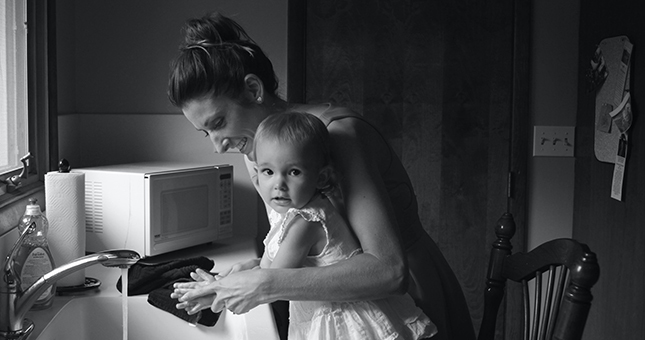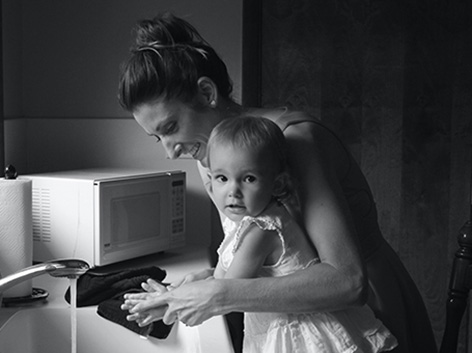
There’s Hope for Families: Catechesis During a Pandemic
“My kids stopped tuning in to our church’s Sunday service after the novelty of Zoom wore off—about three weeks into the pandemic. That was twelve months ago.” We’ve heard testimonies like this from more than a few families at our Vancouver church as the COVID-19 lockdown wears on with no end in sight. We know families face unique challenges: isolation from community, loss of in-person Sunday School and Youth programs, languishing mental health for all ages and weary parents juggling work and home pressures. But what can the church do about it? We think it’s time for the church to dust off a tried-and-tested tool for all-ages spiritual formation: catechesis.
You might be thinking, “catechesis ... what a strange and archaic response to twenty-first century problems! Isn’t catechism that question and answer format that Roman Catholics use for kids’ confirmation?” Certainly, catechism can take that form. But J. I. Packer reminded us that catechesis is simply “the church’s ministry of grounding and growing God’s people in the gospel and its implications.” The gospel (the all-ages good news of repentance and faith that we never outgrow) and its implications (the practical wisdom of how to live for Christ in a complicated world). Well, that doesn’t sound fusty and outmoded! How does it work?
Take, for example, two of the biggest challenges facing the church right now: anxiety about the future and insecurity about our own ability to be disciple-makers. How does catechesis respond to these two realities? First, catechesis is a pedagogical approach that prioritizes the parent and child as co-learners. So, there’s no need to pretend we have all the theological answers! Catechesis is a dialogue, a conversation around the table that honours the primacy of God’s word alongside the voices of historic Christian theology and praxis, as well as contemporary cultural contexts. Second, catechesis is a disciple-making tool rooted in the character and promises of God and the work of the Holy Spirit. It’s not just for professionals. Much of our anxiety and doubt as disciplers comes from the unhelpful notion that teaching is the sole work of professional teachers and pastors. Catechesis brings God’s revelation back into the centre of family life, where God equips the older generation to disciple the younger.
But let’s be honest about how many in the church respond: “Sure, I want to agree with you, but it’s overwhelming to even think about starting something like this!” Here are three simple steps for beginning catechesis.
First, introduce the importance of family discipleship as both a privilege and a command from God (Deuteronomy 6; 2 Timothy 1). Advocate for family catechesis as a joyful response to the challenges we’re facing rather than a burdensome duty. Be clear in defining catechesis as a biblical, dialogical way to learn together (“the gospel and its implications”) rather than a memorization technique for rote learning.
Second, initiate family catechesis as a partnership between the church and the home in such a way that families are invited into a discipleship plan with a sense of hope and connection to the body of Christ. You will need to help families choose a model that can integrate into their weekly rhythm, such as beginning or ending the day with a liturgy of morning or bedtime prayer alongside a bible reading, playing (and singing along to!) worship music during meal prep and household chores, listening to a Bible audiobook and discussing the passage during the daily commute to school, or using art materials during online church services to respond to scripture and integrate Sunday worship into family life. Each family is different, so here are a few questions to ask: How old is your child? What time of day does your child learn best? When can you learn together without hurrying? Consider checking out New City Catechism or the At Home Family Worship Guides based on the God’s Big Story curriculum. These resources introduce doctrine in a Q&A format andemphasize the dialogical and multisensory approach we’re advocating. Finally, it’s wise to get input or feedback from a few families before announcing any church-wide initiative. We suggest you launch with a meeting for parents to gather momentum, answer questions and pray together as you begin.
Third, support family catechesis pastorally by regularly connecting with families for prayer and guidance. Families will stumble; some will simply ignore the whole adventure. You may want to prayerfully consider how a pastor or mature Christian in your congregation can gather two or three families together to model catechesis for a season, building up parents courage and resilience as teachers and then handing leadership back to the home.
There’s no bullet-proof way to nurture family faith during a pandemic. We’re all searching for ideas and inspiration to guide our churches into deeper union with Christ and dependence on God’s promises. Let’s not allow ourselves to minimize the urgency of family discipleship for such a time as this. We can’t simply wait until the pandemic is over to resume programs and react to crises then! Perhaps COVID-19 is just the wakeup call we all need to prayerfully reengage in this vital partnership between the church and the home. Perhaps now is the right time to take an old friend off the shelf and give catechesis a try.



